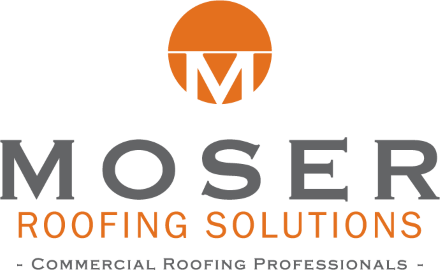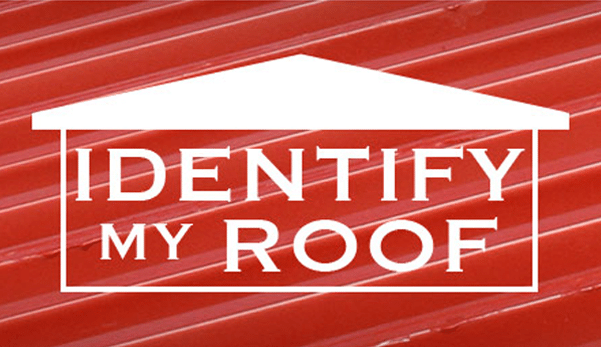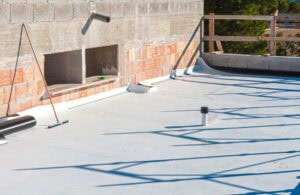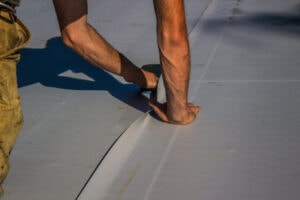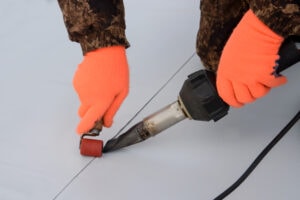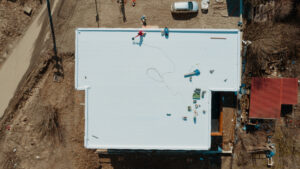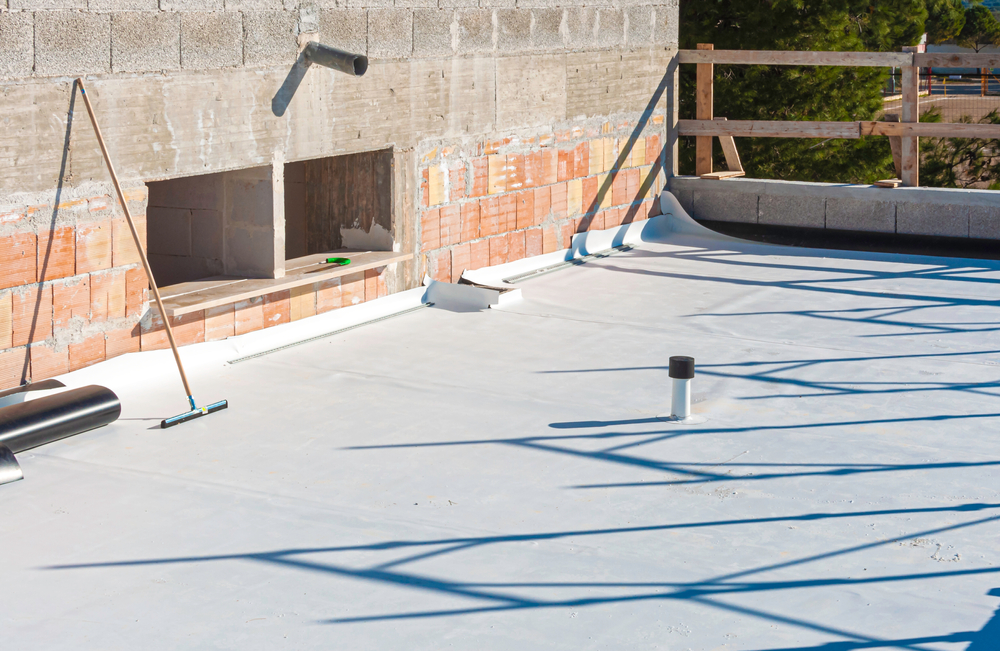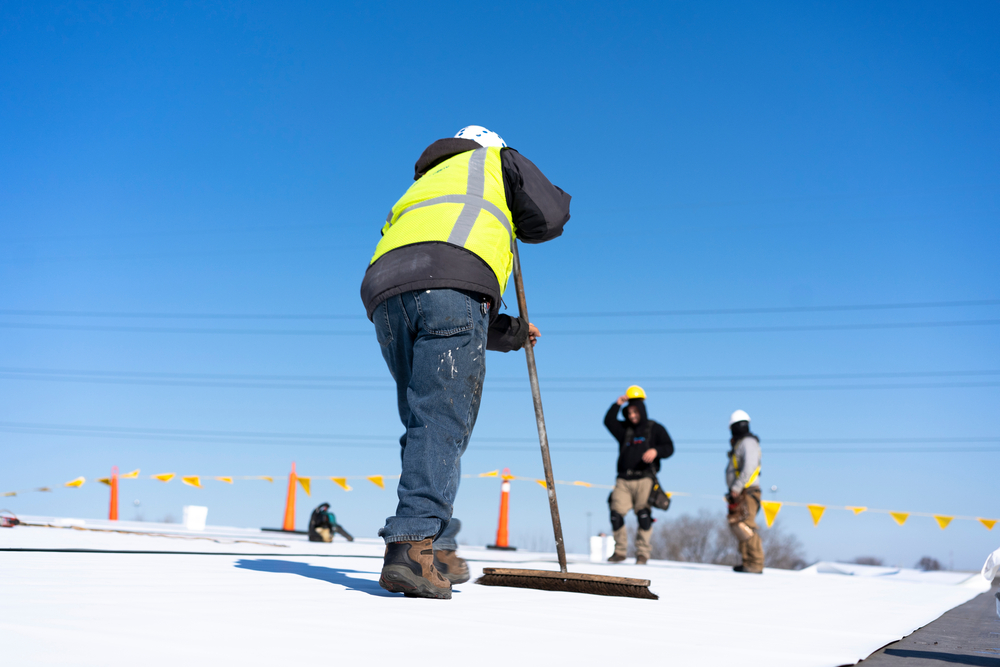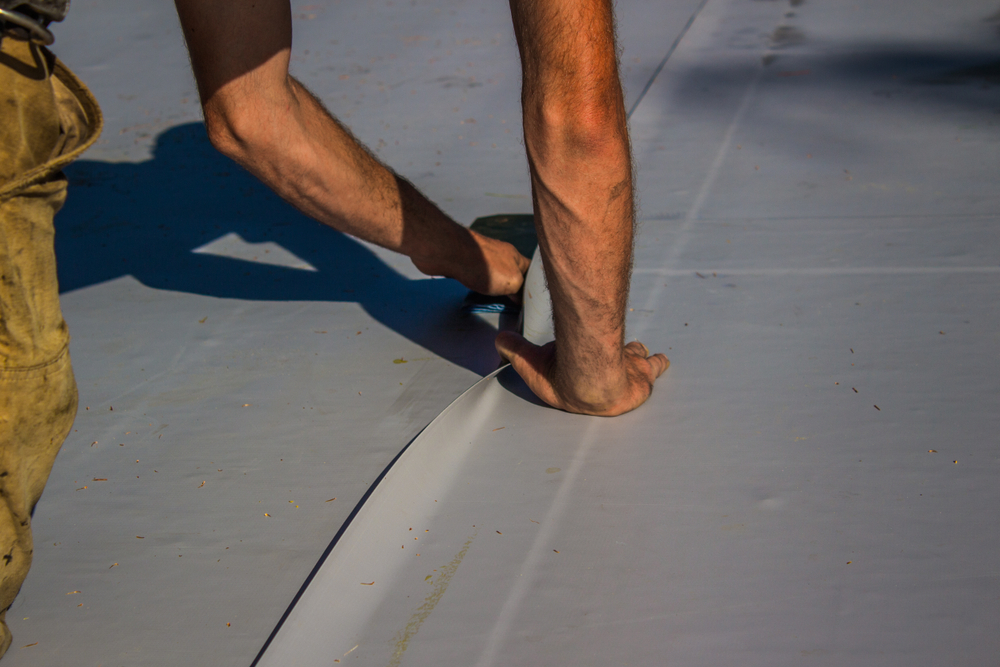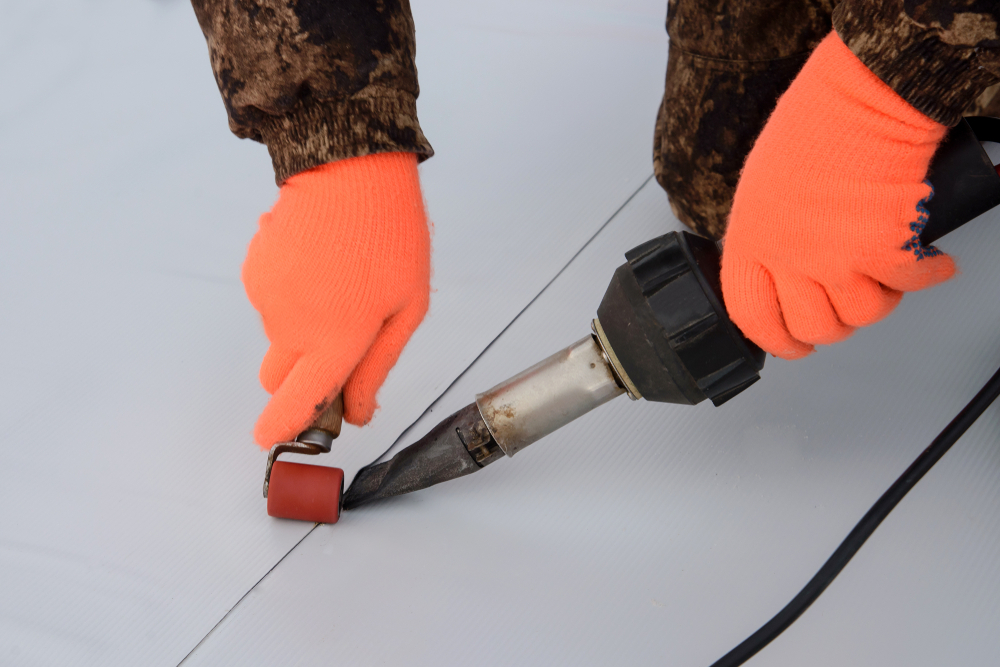What Material Is Your Roof Made Of?
Just as there are many types of commercial buildings with a variety of functions and needs, there are many types of commercial roofing systems, each with distinct advantages and disadvantages. With a wide variety of commercial roofing types, business owners can choose the best roofing materials to fit their needs and their budget.
While the variety of commercial roofing types gives building owners and facility managers a lot to choose from, it can be difficult to keep track of all these types of roofs, understand their unique benefits, and select the best roof for their specific situation. At Moser Roofing Solutions, we make it a priority not just to build roofs for our customers, but to empower our customers to make educated decisions about their commercial roofing systems.
What’s the difference between EPDM, TPO, and PVC? Which type of metal roofing is best? And what is built-up roofing, anyway? Let’s take a look at some of the most common commercial roofing types as well as the unique advantages of each.
Built-Up Roofing
Built-up roofing, or BUR, is a roofing system constructed using alternating layers of material to form a durable, watertight seal over a flat or low-slope roof. Once the most common form of commercial roofing system, it has since fallen out of favor for newly constructed buildings.
BUR gained popularity due to its supreme durability against wind, impact damage, and other common threats to flat and low-slope roofs. However, installing a built-up roof is an arduous process, as it takes many labor-hours to apply the layers of material and wait for them to set. In addition, these roofs can be difficult to maintain, as leaks in BUR roofs are tricky to diagnose and repair. Because of this, BUR is rarely recommended for commercial roofs, but existing BUR systems can still be maintained for years to come.
Single-Ply Membranes
A more recent addition to the commercial roofing industry, single-ply membranes are now among the most popular commercial roofing types in use today. This family of roofing materials includes PVC, EPDM, and TPO roofing. Let’s take a look at each.
EPDM (Ethylene Propylene Diene Monomer)
Also called rubber roofing, EPDM was the first single-ply membrane system to become widely available in the commercial roofing industry. EPDM roofing quickly gained favor in the industry due to rubber’s natural resistance to impact damage (such as hail), as well as the material’s affordability. The main disadvantages of EPDM are due to its naturally dark color (leaving it more vulnerable to UV damage) and inferior watertightness compared to other single-ply membranes.
PVC (Polyvinyl Chloride)
PVC was the next single-ply membrane to be introduced as a commercial roofing material. Naturally white in color, it is more resistant to UV damage, and its seams are generally considered more watertight than EPDM. PVC is also resistant to chemicals and fire damage. However, PVC is typically more expensive than other single-ply membranes.
TPO (Thermoplastic Polyolefin)
The most recent single-ply membrane to hit the market, TPO roofing was intended to provide all the best advantages of both EPDM and PVC roofing. It has much of the impact resistance of EPDM, with heat-welded seams to improve its watertightness. TPO is also readily available in lighter colors to avoid UV damage. However, as with PVC, TPO is still typically more expensive than EPDM.
Metal Roofing
The most durable of all commercial roofing types, metal roofing can tolerate severe weather very effectively. What’s more, in addition to its durability against wind, fire, and impact damage, most forms of metal roofing have an expected lifespan of 50 to 70 years or more.
Of course, all of this durability and longevity comes at a high price. While exact costs vary depending on the specific type of metal (such as tin, zinc, copper, or stainless steel), metal typically ranks as the most expensive commercial roofing system in terms of upfront cost.
Moser Roofing Solutions: Experts in All Commercial Roofing Types
As the leading commercial roofing experts serving business throughout Pennsylvania and the Mid-Atlantic region, Moser Roofing Solutions works with all types of flat and low-slope commercial roofs. At Moser, we don’t believe in one-size-fits-all roofing—because the commercial buildings we roof are as different from one another as the businesses they protect.
We pride ourselves on fully educating our customers on their commercial roofing options before providing our recommendations for their roof so they can make the best decisions for their businesses. Learn more about commercial roofing types by contacting Moser Roofing Solutions today! Your roof protects your building. We protect your roof!
